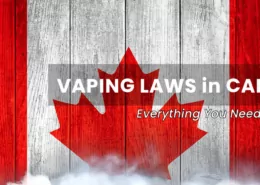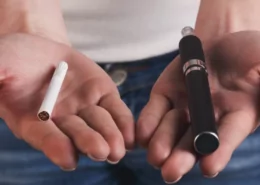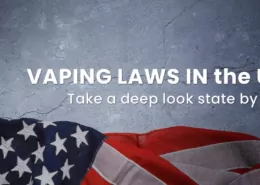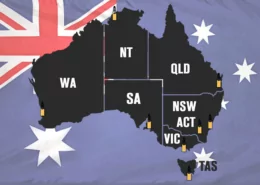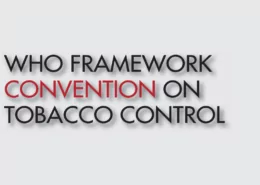New Deadline for Smoking and Vape Laws in South Africa
The Portfolio Committee on Health has recently made an important announcement regarding the new Tobacco Products and Electronic Delivery Systems Control Bill in South Africa. The public consultation period for this bill will conclude on July 28th. In this article, we will delve into the key details of the bill, its objectives, and the potential impact it may have on the smoking and vaping industry in the country.
Understanding the Bill
The primary objective of the Tobacco Products and Electronic Delivery Systems Control Bill is to regulate not only traditional tobacco smoking but also electronic cigarettes, commonly known as vapes. Vapes have gained immense popularity not only as a means to quit smoking traditional cigarettes but also as a gateway into nicotine consumption.
The bill aims to establish comprehensive regulations governing the sale and advertising of tobacco products and electronic delivery devices. Some of the proposed measures include:
- Legislation for Electronic Nicotine and Non-Nicotine Delivery Systems: The bill will focus on establishing regulations for electronic nicotine and non-nicotine delivery systems. This ensures that all types of electronic delivery devices are subject to appropriate guidelines and restrictions.
- Introduction of Plain Packaging and Health Warnings: The bill aims to introduce plain packaging for tobacco products, featuring graphic health warnings and pictorials. This measure intends to discourage smoking and increase awareness of the associated health risks.
- Ban on Display at the Point of Sale: The bill seeks to impose a total ban on the display of tobacco products and electronic delivery devices at the point of sale. This restriction aims to reduce the visibility and accessibility of these products, particularly to minors.
- 100% Smoke-Free Areas: The bill proposes the establishment of 100% smoke-free areas, including indoor public places and specific outdoor areas. This measure aims to protect individuals from the harmful effects of secondhand smoke.
- Ban on Vending Machines: The bill advocates for a complete ban on vending machines for tobacco products. This restriction aims to eliminate easy access to tobacco and related products, further discouraging their use.
Mixed Reactions and Concerns
When the Portfolio Committee on Health briefed Parliament on the new bill earlier this month, it elicited mixed reactions from various stakeholders. Many expressed concerns about the potential negative consequences that the bill could have on the tobacco and smoking industry, which is a significant driver of economic growth in South Africa.
Members of Parliament voiced apprehension that the bill may inadvertently lead to more people turning to the illicit tobacco industry, resulting in job losses and other adverse effects. These concerns highlight the delicate balance that needs to be struck between health regulations and economic considerations.
Debating the Impact on Vaping
One aspect of the bill that has generated substantial discussion is its impact on vaping products. Asanda Gcoyi, the chief executive of the Vapour Products Association (VPASA), believes that combustible alternatives to traditional cigarettes should play a crucial role in reducing tobacco-related harm in South Africa. She argues that vaping should be viewed as a potential solution rather than a new problem.
Gcoyi further notes that the government has tended to demonize vaping, portraying it as more harmful than traditional smoking. Consequently, the bill not only regulates vapes but also subjects them to excise taxes, as outlined in the updated Tobacco Product Excise.
Barry Buchman, the managing director of Vaperite, highlights the toll that the newly imposed excise duty on vaping products has taken on retailers. Many retailers argue that this tax has unintentionally driven consumers toward the illicit market, undermining the original aim of the National Treasury to address health-related concerns. Buchman explains that the tax incentivizes consumers to purchase higher nicotine-content e-liquids due to their lower cost, which contradicts the intended goal of harm reduction.
Conclusion
The Tobacco Products and Electronic Delivery Systems Control Bill in South Africa aims to regulate both traditional smoking and electronic cigarettes, encompassing vapes. While the bill intends to implement stringent measures to address smoking-related issues, it has raised concerns within the smoking and vaping industry. The delicate balance between public health and economic considerations necessitates careful deliberation to mitigate potential unintended consequences.
FAQs
When will the public consultation on the Tobacco Products and Electronic Delivery Systems Control Bill end?
The public consultation period will conclude on July 28th.
Where can written submissions on the bill be sent?
Written submissions can be emailed to [email protected] or submitted online at https://forms.gle/FLrhnvThDk8ccLG97.
What does the bill aim to regulate?
The bill aims to regulate the sale and advertising of tobacco products and electronic delivery devices, including vapes.
What are some of the proposed measures in the bill?
The proposed measures include legislation for electronic nicotine and non-nicotine delivery systems, plain packaging with health warnings, a ban on display at the point of sale, 100% smoke-free areas, and a ban on vending machines for tobacco products.
What concerns have been raised regarding the bill?
Some stakeholders have expressed concerns about the potential impact on the tobacco/smoking industry, including job losses and the growth of the illicit tobacco market.
- FDA Cracks Down on Firms Selling Unauthorized E-Cigarettes Resembling Smart Devices - October 31, 2024
- Spanish Government Considers Taxing Vape Products - October 31, 2024
- France to Ban Nicotine Pouches Targeted at Teenagers - October 31, 2024


